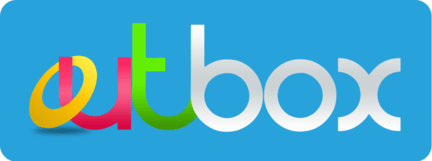
For one of every four women of menstrual age in Uganda, a menstruation period will prevent them from engaging in normal daily life.
Faced with this unpleasant fact plus the threat it poses to the efforts in place to break the vicious cycle of poverty faced by women in rural Uganda as well as the fight against gender imbalance in the workplace, Asiimwe Lydia set out to find an innovative solution to ensure girls stay in school and acquire an education in order to compete favorably.
From the existing literature, Lydia found that one of the leading causes of girl-child school drop out in Uganda is lack of access to affordable Menstrual Health supplies. Determined to make this right, she joined a group of 3 other girls; Shakira Namatovu, Susan Mbabazi and Noel Aryanyijuka from Mbarara University; and together formed a team to address this challenge.
“We set out to improve menstrual Health management by developing affordable sanitary pads using locally available sugarcane fibre. Our aim was to make menstrual supplies not only readily available but also affordable to girls from all backgrounds,” says Lydia.
Together with her team, Lydia applied for the Up Accelerate programme, an initiative by Outbox in partnership with the United Nations Population Fund (UNFPA) seeking to support young social entrepreneurs addressing challenges of Sexual and Reproductive Health and Rights and Gender Based Violence. When they joined the programme, the team wanted to move their product from an idea to a tangible prototype, incorporate it into a legally registered social enterprise as well as make their initiative known to the world. Fortunately for them, their team was amongst the winners, walking away with a seed fund of 10,000 USD.
“We developed the first prototype of EcoSmart pads and showcased it at the 2017 Up Accelerate Demo-day, at the Uganda Development Bank i-Growth Innovation Challenge and at the first East and Southern Menstrual Hygiene Management symposium hosted in Johannesburg in 2018. We are visible on the world market through our website and have received support from a number partners through this visibility,” says Lydia.
EcoSmart pads are low cost, biodegradable pads made from locally available sugarcane fiber making them commercially viable for women and girls from low resource environments.
EcoSmart Uganda now exists as a legally registered company and has also gone ahead to receive more funding besides the UpAccelerate support. The team won the 2018 Big Idea challenge by Makerere University and funding to support the implementation of the EcoSmart Uganda Education programme, “Break the Silence Uganda – a guide to using EcoSmart pads”.
Break the Silence Uganda is a tool EcoSmart Uganda developed in line with the menstrual education tools developed by the Ministry of Education in Uganda as part of their marketing strategy seeking to empower school going girls with information on Menstrual Health Management.
“Through this initiative, the girls in the schools and organisations we have visited no longer feel shy about sharing their Menstrual Health Management challenges. They no longer look at menstruation as a dark taboo that women cannot talk about, it is now viewed as an important part of life which women should be free to openly discuss.
On 1st February 2019, UNFPA and Kao Corporation, a Global consumer products and chemical company, forged a partnership agreement with EcoSmart Pads to implement a social change initiative of menstrual hygiene management dubbed “Menstrual Hygiene Improvement Project in Uganda,”aimed at achieving zero girls missing school due to menstruation periods.
Kao is providing funding to EcoSmart Uganda to domestically produce sanitary pads.
“I have learnt that much as an innovator of a product may have a big heart and may wish to offer such essential health products to vulnerable groups of women free of charge, this may not always be possible because of the cost of production and distribution,” Lydia says.
2019 is the year that will see EcoSmart pads on Uganda’s market. The team is now laying ground for when the product will hit the market.
According to Lydia, the experience she has had so far has taught her that Uganda needs to support business incubation hubs such as Outbox Hub in order to impact more startups.
“We walked into Outbox simply as a group of young women with a picture of how we wanted to help young girls. We knew what we wanted but had no idea how we were going to achieve it. A few months later, we walked out of Outbox as a professional group of very empowered Company Directors of EcoSmart Uganda Limited. During the programme we had a chance to shake hands and interact face to face with the big shots in Uganda’s business world. We walked out with not only a prototype but continued funding support to bring the product to market. We are now unstoppable, capable to making business decisions and taking on any challenge that may come our way,” she says.
Outbox celebrates Lydia for being passionate and innovative about seeing girls in her local community realize their full potential through education in an uninterrupted environment
“I would like to be remembered as a woman who fought to bring equality in Uganda by devising means of keeping girls in school - as one who innovatively brought the affordable EcoSmart pads on the market,” she says.

